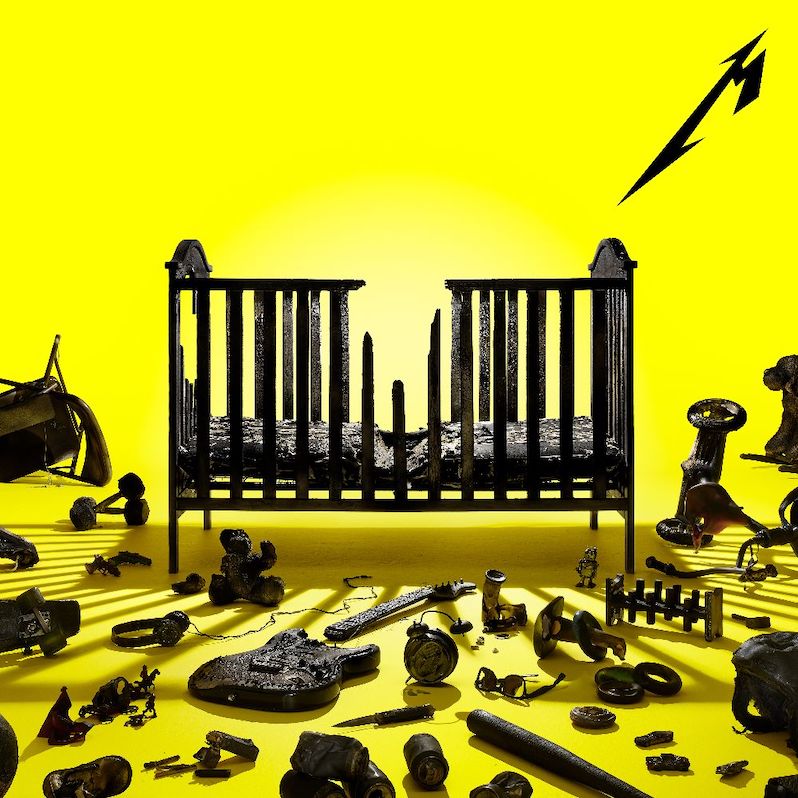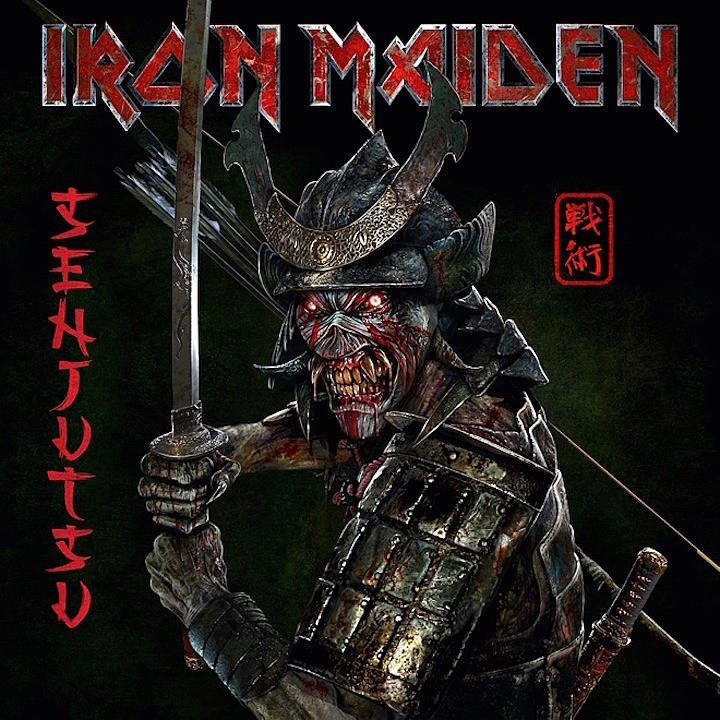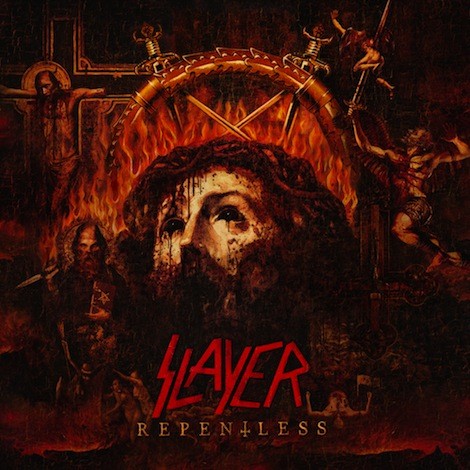Metallica : 72 Seasons

The general consensus among fans and critics is that the 21st century has not been kind to Metallica. Though there has been recognition from some quarters that, if viewed contextually and with the benefit of hindsight, recent efforts such as Death Magnetic, or even the much-maligned St. Anger, have moments of being Not Really That Bad, occasionally soaring to a peak of Actually Pretty Good (by “some quarters,” I mean me; I’m talking about me), the overall expectation has been low, and the bar for any Metallica record released this side of the fall of the Berlin Wall has not exactly been stratospheric.
Which makes 72 Seasons a welcome surprise. It’s the band’s first release in 20—perhaps 30—years for which it is possible to offer praise almost entirely without compromise. You’ll find no “it’s alright, you just have to ignore the snare…” mitigations here. The thrash metal godfathers have delivered a crunchy blast of mean, riff-driven thrills, with 12 songs that orbit the loose theme of growing up, and how those first 72 Seasons (72 season = 18 years!) have ripple effects on the rest of your adulthood.
Metallica have spent probably the best part of their career by now not so much addressing as simply ignoring the question of whether thrash metal songs can or should be sustained for a runtime of five minutes or longer. The Metallica view is that any song clocking in at under six minutes is rookie shit. As such, 72 Seasons is packed with lengthy offerings that—for the most part—are tightly executed enough not to drag.
“Sleepwalk My Life Away” is a robust, cascading mountain rage of crashingly heavy blues-tinged riffs, while “You Must Burn” takes us on a journey of menacing, thunderous chugs, complimented by the ethereal vocal debut of bassist Robert Trujillo. “Inamorta,” the album’s titanic closer (and Metallica’s longest-ever song, sans Lou Reed, at 11 minutes and 10 seconds) drags us on a sludgy march through Hetfield’s toxic relationship with his own mental health before dropping us into a surprisingly sweet middle section. Trujillo’s bass gently circles Hetfield’s softened, desperate vocals, before launching into a harmonized solo and back into that unrelenting sludge-march that the song began with.
The band occasionally fall into the trap that seems to ensnare all metal musicians from time to time—yes, that’s a technically proficient solo, but does it actually make the song better? You know, play the music, not the instrument, and all that. As great as these tracks are, it still pays to leave the listener wanting more, and there are a couple of songs where you can pinpoint to the second when the performance switches from gripping and atmospheric to something that just feels self-indulgent and somewhat tiresome.
Which is not to say that shorter is necessarily better. Rather, the best songs on 72 Seasons are the ones that make the greatest use of light and shade. “Crown of Barbed Wire,” for example, slinks between sinister, Sabbath-esque guitar lines, a rocky, melodic chorus, and quite possibly the heaviest riff the band has written since “Sad But True.” “Shadows Follow” uses a thumping, thrashy gallop as a means of punctuating its slower, staccato moments of sharp, punchy, nose-wrinkling heaviness.
It’s a shame that the band’s penchant for a little excess noodling adds some sloppiness to what is otherwise a finely compacted roster of powerful tracks. But it’s well placed in the band’s oeuvre for an album that’s focused on growth. Shockingly, the length of time between Kill ‘Em All and St. Anger—20 years—is equal to the duration between St. Anger and 72 Seasons. While that first 20 years saw far more obvious changes, 72 Seasons shows a band pushing through the trials and tribulations of the latter half of their career, and proving they are still more than capable of growing up.
Label: Blackened
Year: 2023
Similar Albums:




